
Sandra Oh stars as an eighteenth-century midwife and moral lodestone.
Early in “The Welkin,” the British playwright Lucy Kirkwood’s period thriller, now at the Linda Gross Theatre, a dozen women appear in something like an eighteenth-century diorama: they are arranged in bas-relief against a black curtain, each obsessively performing a single task. Whump, whump, whump goes a carpet beater; scrape, scrape, scrape grinds a brush against the floor. It’s a cliché, of course, that “women’s work” is backbreaking and soul-crushing, but Kirkwood, who also wrote the Tony-nominated play “The Children”—in which retired nuclear scientists consider sacrificing themselves to shut down a damaged reactor— is interested in what follows the cliché. If work can crush a soul, who’s to blame for the monstrous thing that takes that poor soul’s place?
In Kirkwood’s play, directed for the Atlantic Theatre Company by Sarah Benson, a court has already condemned a young married woman, Sally Poppy (Haley Wong), to hang, for helping her lover murder a little girl. We’re pretty sure she did it: the play starts with a candlelit prologue, in which Sally visits her abandoned husband raving and covered in the child’s blood. But Sally has sworn to the judge that she’s pregnant, and, under English common law in 1759, “pleading the belly” could commute the sentence. The judge presses twelve women—a “jury of matrons”— into service to evaluate Sally, sequestering them “without meat, drink, fire and candle,” to hasten their examination along.
This story is from the June 24, 2024 edition of The New Yorker.
Start your 7-day Magzter GOLD free trial to access thousands of curated premium stories, and 9,000+ magazines and newspapers.
Already a subscriber ? Sign In
This story is from the June 24, 2024 edition of The New Yorker.
Start your 7-day Magzter GOLD free trial to access thousands of curated premium stories, and 9,000+ magazines and newspapers.
Already a subscriber? Sign In
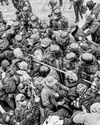
GET IT TOGETHER
In the beginning was the mob, and the mob was bad. In Gibbon’s 1776 “Decline and Fall of the Roman Empire,” the Roman mob makes regular appearances, usually at the instigation of a demagogue, loudly demanding to be placated with free food and entertainment (“bread and circuses”), and, though they don’t get to rule, they sometimes get to choose who will.
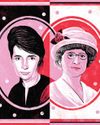
GAINING CONTROL
The frenemies who fought to bring contraception to this country.

REBELS WITH A CAUSE
In the new FX/Hulu series “Say Nothing,” life as an armed revolutionary during the Troubles has—at least at first—an air of glamour.

AGAINST THE CURRENT
\"Give Me Carmelita Tropicana!,\" at Soho Rep, and \"Gatz,\" at the Public.

METAMORPHOSIS
The director Marielle Heller explores the feral side of child rearing.
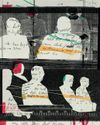
THE BIG SPIN
A district attorney's office investigates how its prosecutors picked death-penalty juries.
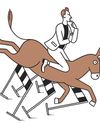
THIS ELECTION JUST PROVES WHAT I ALREADY BELIEVED
I hate to say I told you so, but here we are. Kamala Harris’s loss will go down in history as a catastrophe that could have easily been avoided if more people had thought whatever I happen to think.
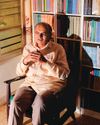
HOLD YOUR TONGUE
Can the world's most populous country protect its languages?
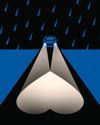
A LONG WAY HOME
Ordinarily, I hate staying at someone's house, but when Hugh and I visited his friend Mary in Maine we had no other choice.

YULE RULES
“Christmas Eve in Miller’s Point.”